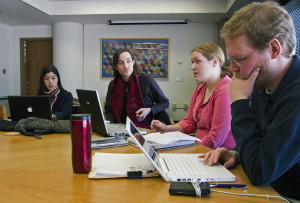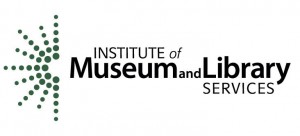What if education could do more?
And what if continuing education could be more?
The world is full of seemingly intractable challenges––but also incredible opportunities to work together, build community, and solve problems. So how can we rethink LIS education to more immediately meet our real-world needs?

In 2009, UW-Madison SLIS began offering the Tribal Libraries, Archives, and Museums (TLAM) course, which introduces students to Indigenous information issues through ongoing service-learning partnerships with tribal cultural institutions.
Then, in 2010, SLIS began coordinating professional development gatherings for tribal librarians, archivists, and museum curators. To date, thanks to funding from the Ira and Ineva Reilly Baldwin Wisconsin Idea Endowment, the Morgridge Center for Public Service, and the Institute of Museum and Library Services, we’ve had eight mini-conferences and two regional institutes.
Every year we’ve worked to make learning more meaningful, mutually beneficial, and practical by incorporating elements of Indigenous pedagogy that seek to balance head and heart and always support the sovereignty and self-determination of tribal communities.
Now we’re excited to enter a new phase of our effort to make education more. We’re calling it Growing Great Lakes Culture Keepers.
 With funding from the Institute of Museum and Library Services, SLIS will coordinate three more professional development institutes for Great Lakes tribal librarians, archivists, and museum curators.
With funding from the Institute of Museum and Library Services, SLIS will coordinate three more professional development institutes for Great Lakes tribal librarians, archivists, and museum curators.
But this time, our learning will be for a very specific purpose.
Our continuing education will help regional tribal librarians, archivists, and museum curators as they develop a traveling exhibition together. The project hopes to support regional cooperation through the creation of authentic information about Great Lakes tribal communities. And, in the process, we expect to learn lots about things like exhibit design, outcome based planning and evaluation, project management, graphic design, curriculum development, programming, and marketing.
LIS graduate students will be integral in this effort, too. In each of the next three summers, SLIS will offer a new class tied to developing the traveling exhibition. This year, for instance, we’ll focus on topics like Indigenous pedagogy, planning and evaluation, exhibit design, and project management. By the semester’s end, we’ll have a three-year draft project plan to get the traveling exhibition rolling. And, in recognition of the critical importance of relationships, place, and experiential learning, students will also spend two weeks working in tribal cultural institutions.
So please stay with us on our upcoming three-year experiment to make LIS education more, well, more! More relevant, meaningful, and valuable to tribal communities. If you stick with us, we’ll do our best to have a new traveling exhibit to show you in just a few years.
The first step, though, will be developing our new class. Let’s see what we can do!
Check back soon!
-Omar
